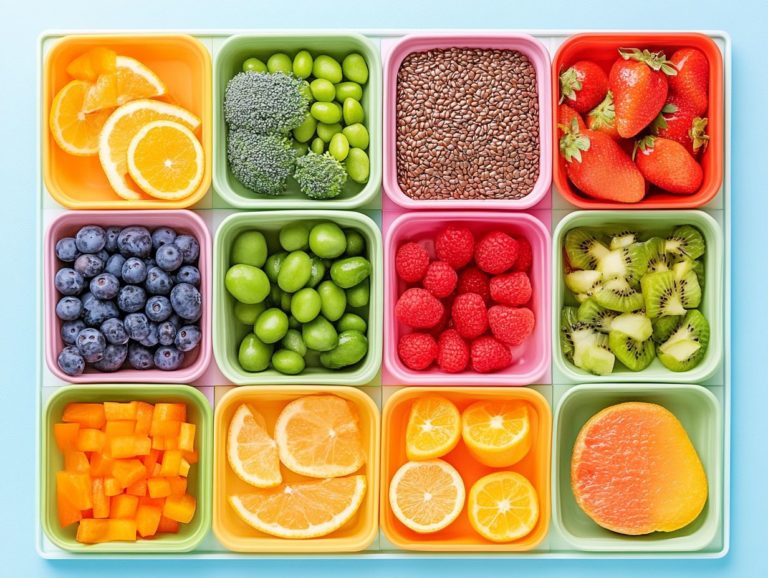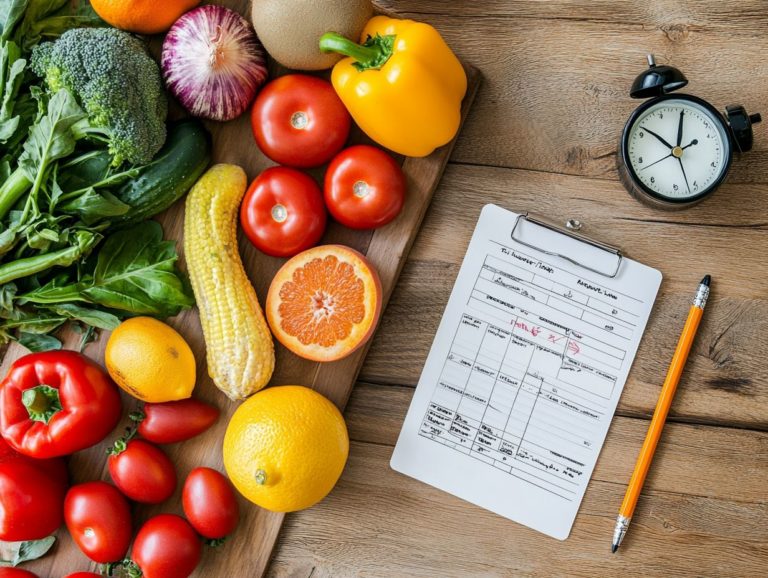Meal Planning for Athletes: What to Consider
Your performance in sports relies on more than just training. Nutrition is a game-changer!
For athletes like you, meal planning is not just convenient it s transformative.
This article shows how proper nutrition boosts your athletic performance. We’ll cover key nutrients like protein, carbohydrates, and healthy fats.
You ll learn practical meal planning strategies and the importance of meal timing. Discover your specific nutritional needs based on your sport.
Whether you’re a seasoned competitor or just starting out, mastering your meal plan is key to achieving your goals!
Contents
Key Takeaways:
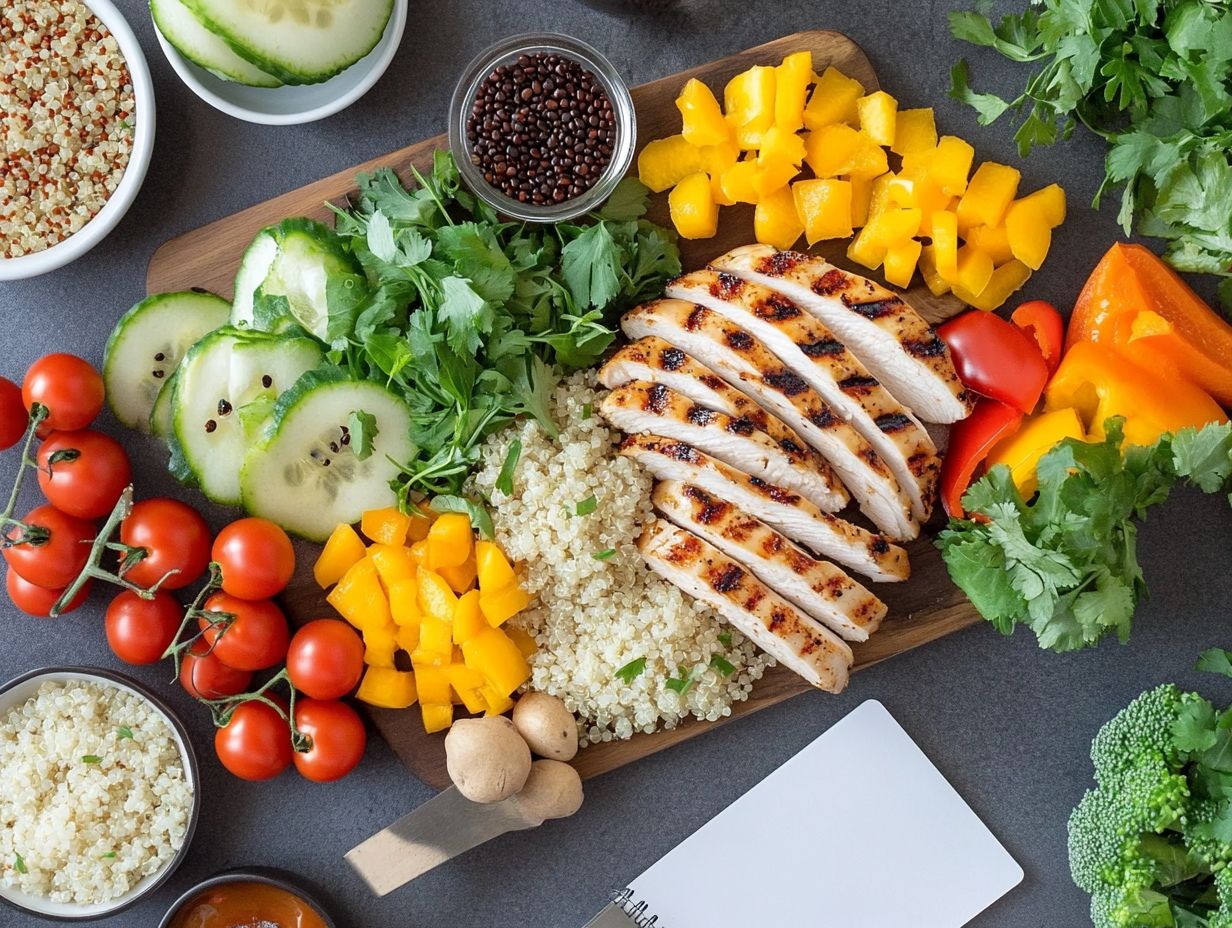
Good meal planning boosts athletic performance and supports training. Focus on a balanced diet with enough protein, carbohydrates, and healthy fats. Meal timing and nutrition around workouts are crucial for optimizing performance and recovery.
The Importance of Meal Planning for Athletes
Meal planning can be a game-changer for you as an athlete. It helps elevate your performance, enhances recovery, and meets your dietary needs.
A well-planned 7-day meal plan acts as your blueprint. It ensures you meet your energy requirements while consuming the right macronutrient ratios carbohydrates, fats, and proteins tailored to your exercise intensity and hydration strategy.
By integrating nutrient-rich foods and using meal delivery services when needed, you can simplify your nutrition efforts. This makes it easier to stick to your dietary goals while optimizing performance and recovery.
How Proper Nutrition Impacts Performance
Proper nutrition is essential for your athletic performance. It directly impacts your energy levels, recovery, and overall physical capabilities.
The balance of macronutrients healthy carbohydrates, fats, and proteins plays a crucial role in your ability to train effectively. Carbohydrates act as your primary fuel during high-intensity workouts, supplying the energy necessary for explosive movements.
Healthy fats sustain energy during longer, moderate- to low-intensity sessions, allowing you to maintain endurance over time. Proteins are vital for muscle repair and growth.
Consider meal timing by strategically consuming these macronutrients around your training sessions. For example, enjoying a protein-rich meal after a workout aids in muscle recovery, while eating carbohydrates beforehand can enhance performance by replenishing glycogen stores.
Key Nutrients for Athletes
Understanding the essential nutrients that power athletic performance is crucial for you as an athlete aiming to elevate your training results and overall well-being.
Protein, Carbohydrates, and Healthy Fats
The three major macronutrients proteins, carbohydrates, and fats each play distinct roles in your diet as an athlete. They significantly contribute to muscle recovery and energy levels.
Proteins are particularly crucial for repairing and building muscle tissues. Great sources include chicken sausage and Greek yogurt, which also provide calcium for bone health.
Carbohydrates, especially from whole grains like quinoa, are vital energy sources that fuel your workouts and help replenish glycogen stores post-exercise.
Meanwhile, healthy fats from nuts and avocados reduce inflammation and provide long-lasting energy during recovery.
Together, these macronutrients create a balanced diet that supports optimal performance and endurance.
Meal Planning Strategies for Athletes
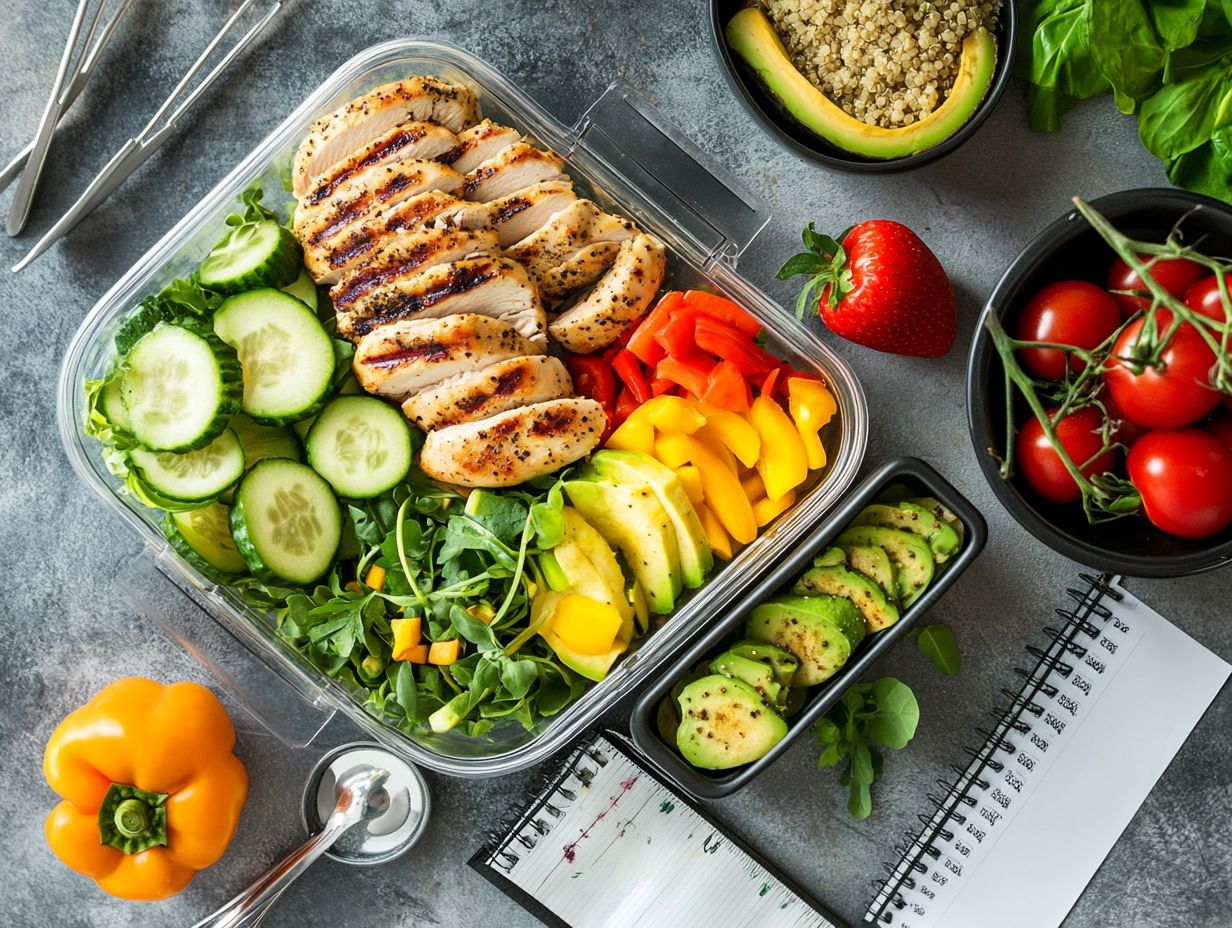
Effective meal planning strategies are essential for optimizing your performance and recovery during training and competitions.
By carefully considering your nutritional intake, you can enhance your athletic capabilities and ensure you re at your best when it matters most.
Start meal planning today and watch your performance soar!
Meal Timing and Frequency
Meal timing and frequency play a vital role in your diet. They can greatly influence your energy levels and overall performance.
Timing your meals enhances your body s training ability. This provides a steady stream of energy to support demanding exercise routines.
Eating frequently helps prevent fatigue. This ensures that nutrients are available to meet your body s needs.
Hydration is essential. Drinking water regularly keeps your performance sharp and helps maintain peak physical condition.
Pre- and Post-Workout Nutrition
Pre- and post-workout nutrition significantly impacts energy expenditure and recovery. Choosing the right foods prepares you for performance.
Focus on carbohydrate-rich meals before workouts for quick energy. A moderate amount of protein can also support muscle synthesis.
After your workout, prioritize meals rich in protein and healthy fats, ideally within 30 to 60 minutes. This timing is crucial for repairing muscle tissue.
Understanding meal timing and types of nutrients helps you achieve better results in your fitness journey.
Special Considerations for Athletes
Athletes have unique nutritional needs based on their sport and training. Implementing personalized nutrition strategies is essential for optimal performance.
Nutritional Needs for Different Sports
Different sports require tailored nutritional strategies. For endurance athletes, carbohydrates are vital for prolonged efforts.
If you’re focused on strength training, protein is key for muscle repair and growth. Your workout intensity influences your meal selections.
High-intensity training may require quick energy sources, while moderate training allows for a balanced approach to macronutrients.
Supplementation for Optimal Performance
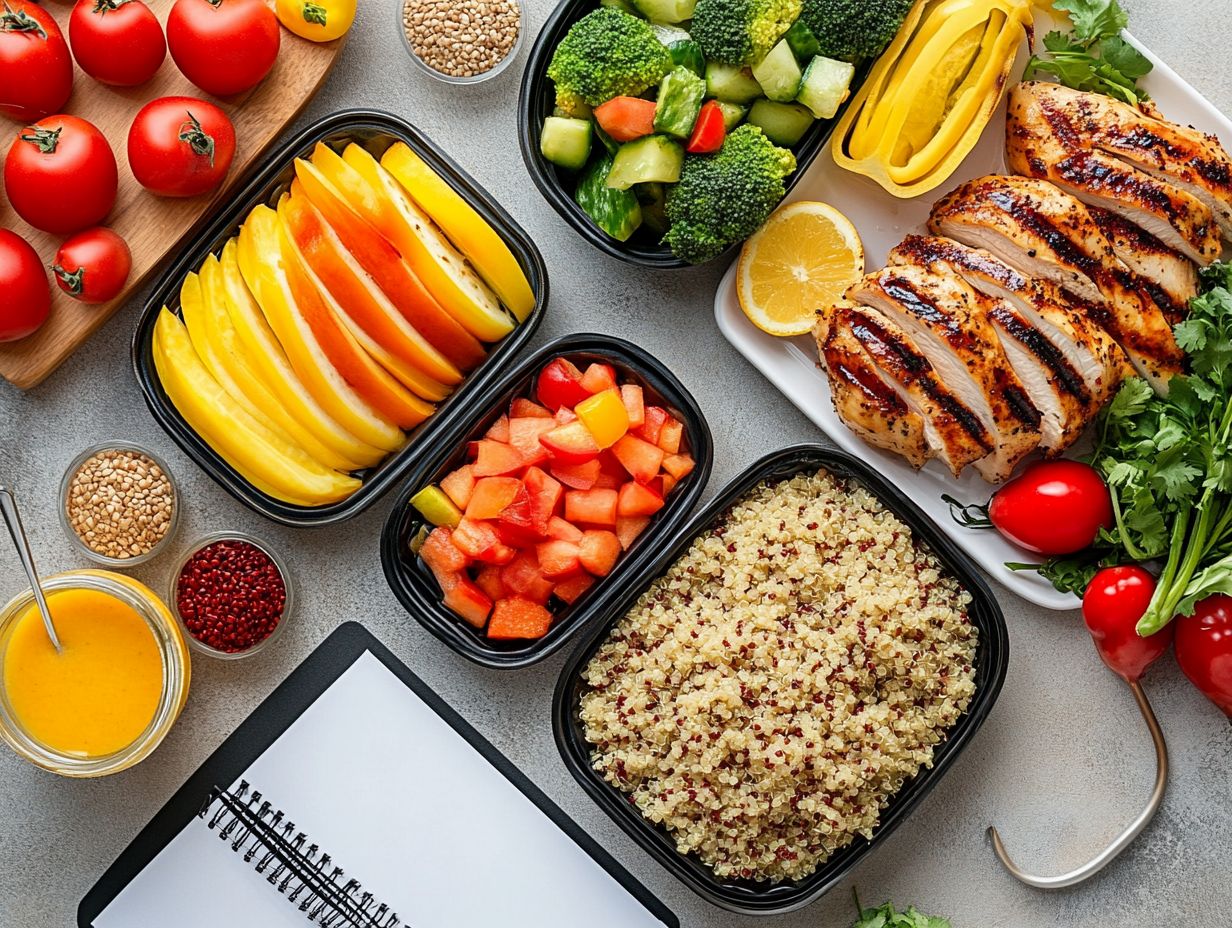
Supplementation can help you meet energy needs and dietary protein goals. In sports, every advantage matters.
Consider protein powders, branched-chain amino acids (BCAAs), which help in muscle recovery, or creatine for growth. These become vital if you can’t meet protein needs through food alone.
Energy-boosting options like caffeine or carbohydrate gels provide an extra edge during training or competitions. Know the benefits of these supplements to elevate your performance.
Creating a Meal Plan for Athletes
Crafting a meal plan for athletes means selecting nutrient-dense foods aligned with training and health goals. Organize this into a 7-day meal plan format to fuel your performance effectively.
Tips for Meal Prep and Planning
Effective meal prep is essential for athletes to reach their nutrition goals while juggling training and competitions. Planning meals carefully helps meet calorie needs and stay hydrated.
By spending some time each week on meal prep, you can make smarter choices that support your performance goals. Include a mix of proteins, healthy fats, and complex carbohydrates, along with regular hydration.
Setting meal portions in advance helps resist unhealthy snacks and fuels you for peak performance.
FAQs
Why is meal planning important for athletes?
Meal planning is a game-changer for athletes! It ensures you get the right nutrients needed for performance and recovery.
What should athletes consider when meal planning?
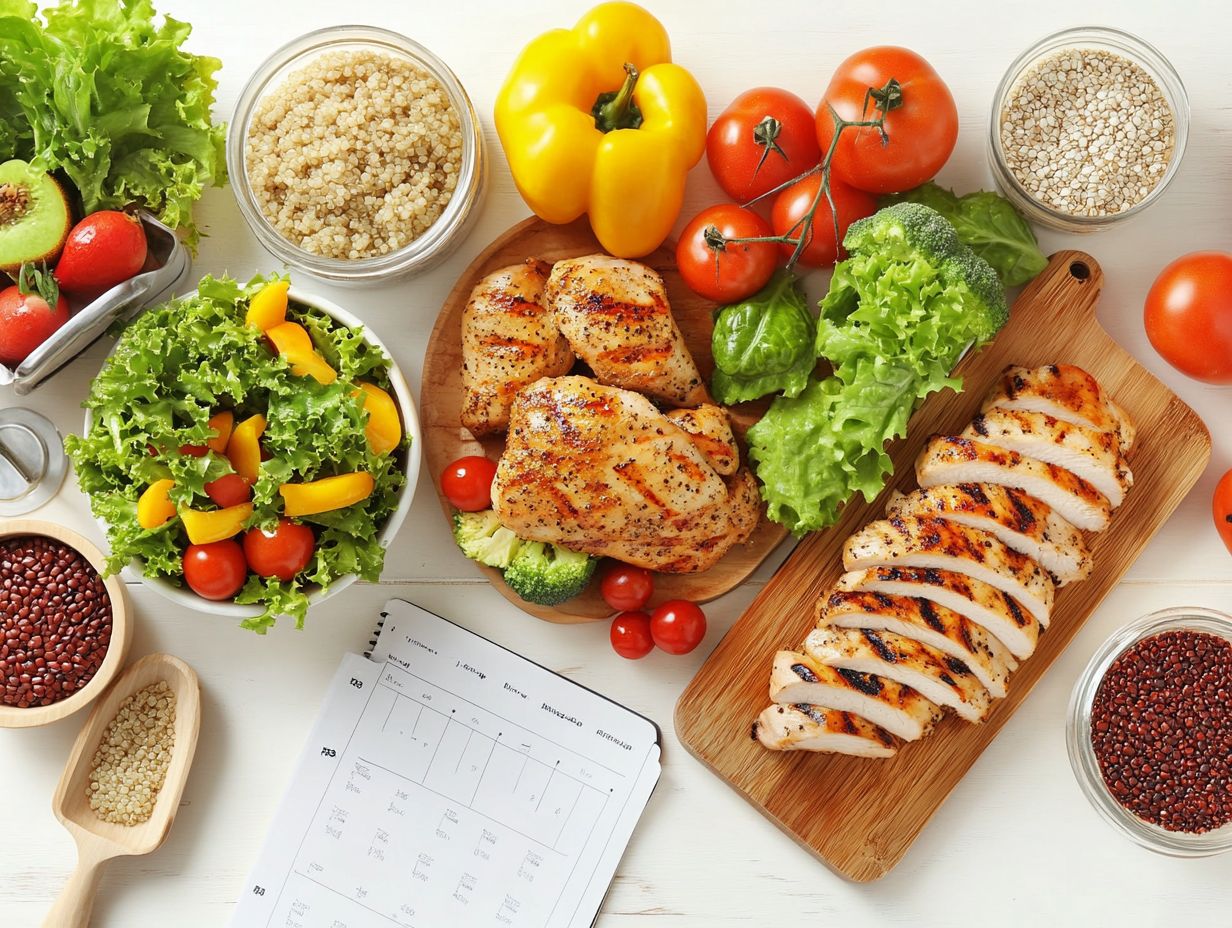
Consider your specific nutritional needs like protein, carbs, and healthy fats. Also, think about your training schedule and meal timing for optimal performance.
How can athletes ensure they get enough protein?
Include a protein source in every meal, like lean meats, fish, eggs, or plant-based proteins such as beans and tofu. Snack on protein-rich options throughout the day.
What nutrients should athletes focus on?
Athletes need to pay attention to nutrients like iron, calcium, and B vitamins. Eating a variety of nutrient-rich foods is key, and consulting a sports dietitian can help with tailored advice.
How can busy athletes plan meals?
Busy schedules can make meal prep tough. Try cooking batches of meals in advance or packing healthy snacks to have handy. Have quick meal options ready for those hectic days!
What are common meal planning mistakes for athletes?
Common mistakes include not eating enough calories or relying too much on processed foods. Focus on whole, nutrient-dense foods and seek advice from a sports dietitian when needed.

